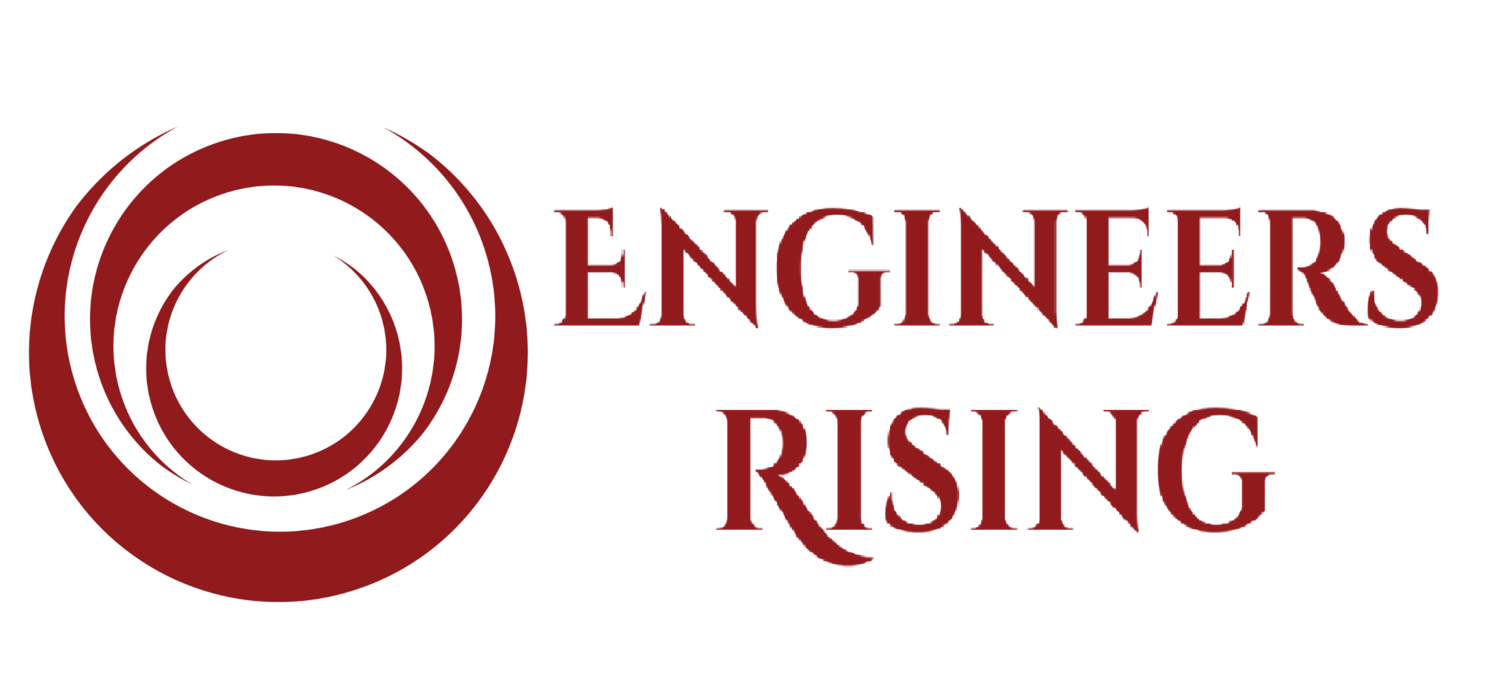Susan Eggers was tired of being interrupted.
Despite the fact that she was more experienced than her male peers, she found herself being talked over often. As she started a presentation and was cut off (AGAIN), she sprayed her male peers with a water toy. She never got interrupted during a presentation again.
Today, Susan is known for her work in advancing computer architecture, but back then she was working on her PhD research at the University of California, Berkeley. The year was 1989, but the issue is still the same today.
Join our community of strong, empowered women in engineering. If you are fed up with the status quo, you are in the right place!
Interruptions Hurt Your Professional Reputation
Every professional woman (and some men) has been there.
Seething through a virtual meeting where you can’t get in a word edgewise.
Getting cut off as soon as you start to share a great idea.
Physically raising your hand during the meeting (even a virtual one) in an attempt to be called on. (I’m not talking about the virtual “raise your hand” feature.)
Having someone else hijack the point you were making and subsequently getting credit for YOUR idea.
You’ve busted tail to earn expertise in your field, and now you can’t even speak up without getting second-guessed or cut off.
The first time it happened, you thought it was a one-off and simply annoying.
Now, you’ve realized the downfall of not getting a word in. You’re losing out on the career opportunities going to many of those who are rudely interrupting you (and aren’t as talented).
It’s not a matter of smarts. It’s a matter of the professional reputation drain that occurs little by little every time you’re interrupted.
That drain adds up and has real consequences, especially in times of economic uncertainty with layoffs looming.
Let’s harness your inner professional executive (I know she’s in there!) and put a stop to it now.
Women in Male-Majority Workplaces Are Interrupted Frequently
According to the Pew Research Center, 79% of women in STEM in majority-male workplaces feel the need to prove themselves at work much of the time, and 48% feel that their gender has made it harder to succeed.
This shows up daily in many different ways, including getting interrupted or spoken over during in-person and Zoom meetings. According to the 2019 Lean.In.org Women in the Workforce Survey, 50% of women overall have reported experiencing interruptions at work, as compared to only 34% of men. That number is even higher for women who are lesbian, bisexual, or disabled.
Much of this behavior is rooted in unconscious beliefs we have based on societal gender stereotypes. It is compounded by the fact that throughout our education, we are rewarded for sitting quietly and waiting to be called upon.
Many engineers have had little practice in speaking up for themselves. They experience a rude awakening when they start working and observe that often it’s the loudest person whose idea is implemented, not the one with the best idea.
Personality and power levels also contribute.
I’ve worked on teams where a senior engineer constantly interrupted EVERYONE. That engineer always needed to have the last word (even with the client!) and thought their opinion necessary to share on every topic imaginable.
I’ve also been the most junior person in the room, and thought that because I had the least amount of experience, I should keep my mouth shut.
I’ve managed an EIT who, by asking a simple question during one of his first client meetings, ended up saving the client and project thousands of dollars.
I have been the technical expert in the room and been interrupted over and over.
In the beginning, I didn’t realize how much those experiences add up over time.
I started to think that maybe I didn’t have something of worth to share. I started to think “why bother” when it came to speaking up. I told myself that it didn’t matter and that my technical work would do the talking for me.
That caused me to speak up less, and the sum of those thoughts diminished my professional confidence.
It wasn’t until later that I realized speaking up and sharing your expertise is ESSENTIAL to busting past any career obstacle in your path, and demonstrating your value at work.
The Best Solution for Stopping Interruptions
In the moment of interruption, it’s human nature to freeze and react ineffectively. That makes it extremely important to prepare and practice in advance for how you will deal with the situation.
I’ve tried a number of methods on this over the years, but I’ve found only one that worked consistently the majority of the time.
The best solution I’ve found (especially in the virtual environment) is simple in concept but not in execution: Keep talking.
The first time you do this will be awkward. You might even feel rude yourself. Ignore that feeling because it’s a sign you’ve internalized those pesky stereotypical gender roles.
YOU were the one talking when you were interrupted. It is NOT your responsibility to allow space for others to talk before you are finished.
It’s also not your responsibility to worry about what they might think of you for taking back control of the conversation.
How are you going to be able to make an impact in the world through your work if your ideas are not heard?
Here’s a couple of specific situations you may encounter, and how to stop the interruptions:
If someone starts talking while you are still talking: Keep talking and pretend you did not hear them. This is the method that is most effective for me in the majority of cases.
If you took a breath and someone jumped in, and now you are not sure what to do without interrupting them back: How you approach this situation is going to depend on the context, personalities, and power dynamics. Here are a couple of phrases you can use to jump back in to the discussion:
“Great point, and now I’m going to finish what I was saying before the interruption.”
“Thanks for sharing, and now I’m going to finish my thought.”
“Before we move on, I’d love to wrap up my thought.”
“I wasn’t finished.”
If the person who interrupted you is the person that interrupts EVERYONE: Interrupt them back when you have something important to say. It might sound harsh but it’s sometimes the only way you can be heard in that particular situation.
If you are in the room when someone else is interrupted: Say “Hold up, I think [name] was interrupted and didn’t get to finish their thought. I’d like to hear what [name] has to say.” This method is extremely effective, but requires two people in the room who are willing to speak up to stop the interruptions. (Allies: This makes a big difference for the person being interrupted, and it’s something anyone can do at any level of your career!)
Talking to your manager about it: This definitely doesn’t work with all managers, so approach this conversation with care. Avoid accusing. Instead say, “I’ve noticed that a few people are dominating our meetings and not allowing everyone to talk. Is there something we as a team can do to make sure all the ideas are being heard?”
The language you use also matters when jumping back into a conversation after an interruption.
Do not apologize or ask permission to speak. Say “Hold on, I need to finish that thought.” Do not say: “Please let me get a word in” or “Please let me finish my thought”.
The word “please” indicates that you are asking for permission to speak. Asking permission implies that their words are more important than yours and that they have a higher level of power than you do. Unless that is ACTUALLY the case (the interrupter is responsible for your continued employment or is a client), avoid permissive language.
Similarly, using body language to stop an interruption often doesn’t work. Many engineers are simply oblivious to those subtle clues. Examples include giving someone the evil eye, icy stare, or otherwise using body language to show that an interruption is unwelcome. This can work in limited cases during in-person meetings, but only if the person interrupting you is both paying attention AND has the emotional intelligence to read your body language.
In a virtual environment, relying on your body language to stop an interruption doesn’t work at all. Relying largely on body language to stop the interruption can also give you a reputation for being peevish, passive-aggressive, and the general opposite of someone with executive presence who is ready for the next level in their career.
Instead, address the interruption directly and with a calm, professional demeanor.
You can also use a similar approach for in-person meetings. One great example of this (regardless of your political leanings), is how Kamala Harris handled interruptions during the 2020 Vice-Presidential debates.
Looking for a community of women and their allies to help you rock your career? Join our movement by signing up below!
What about talking to the interrupter, especially if this a chronic situation on a long-term team? This option works only if you feel comfortable giving direct feedback to the interrupter and can do so in a professional manner without becoming defensive or accusatory. You’ll also want to make sure you have this discussion one-on-one in a non-public environment. Use clear language that focuses on your observations and a positive tone. Examples to start the conversation:
“I felt like I didn’t get a chance to share my thoughts in that meeting.”
“I’ve noticed a couple of team members dominate these meetings, and would like to make sure everyone gets to contribute. Have you observed this too?”
“I’ve noticed I start talking and get cut off. Do you think it is something I’m doing?”
Lastly, you always have an option to let the interruption go. This is very rarely my preferred option, but there can be situations where it’s most appropriate. As with most interpersonal issues in your career, the advice to “pick your battles” is appropriate here.
Regardless of which of these options you choose to deal with interruptions, the key is to be deliberate in your choice and prepare for the inevitable moment when it occurs so you can respond in a way that doesn’t diminish your hard-earned professional reputation.





